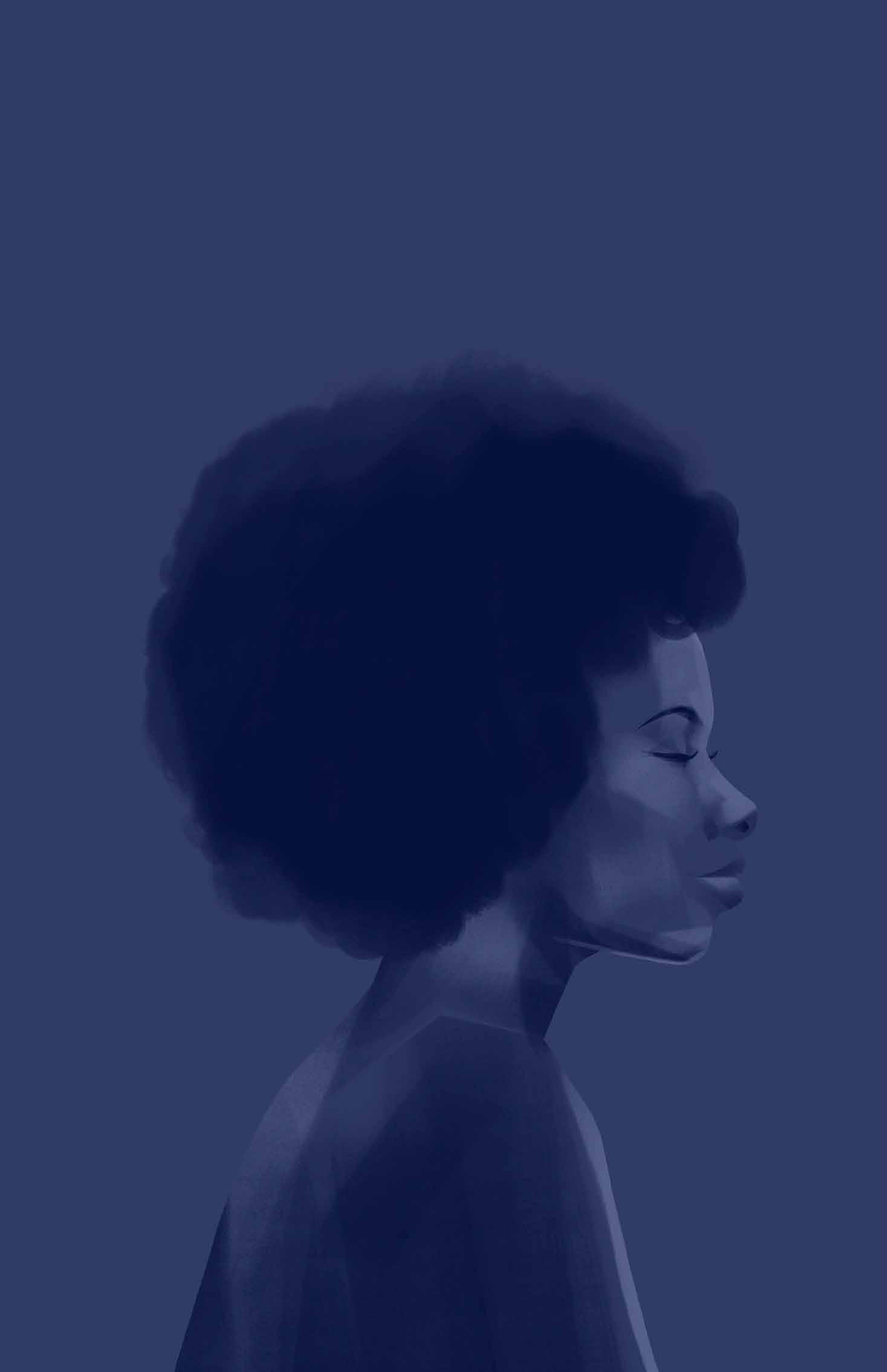
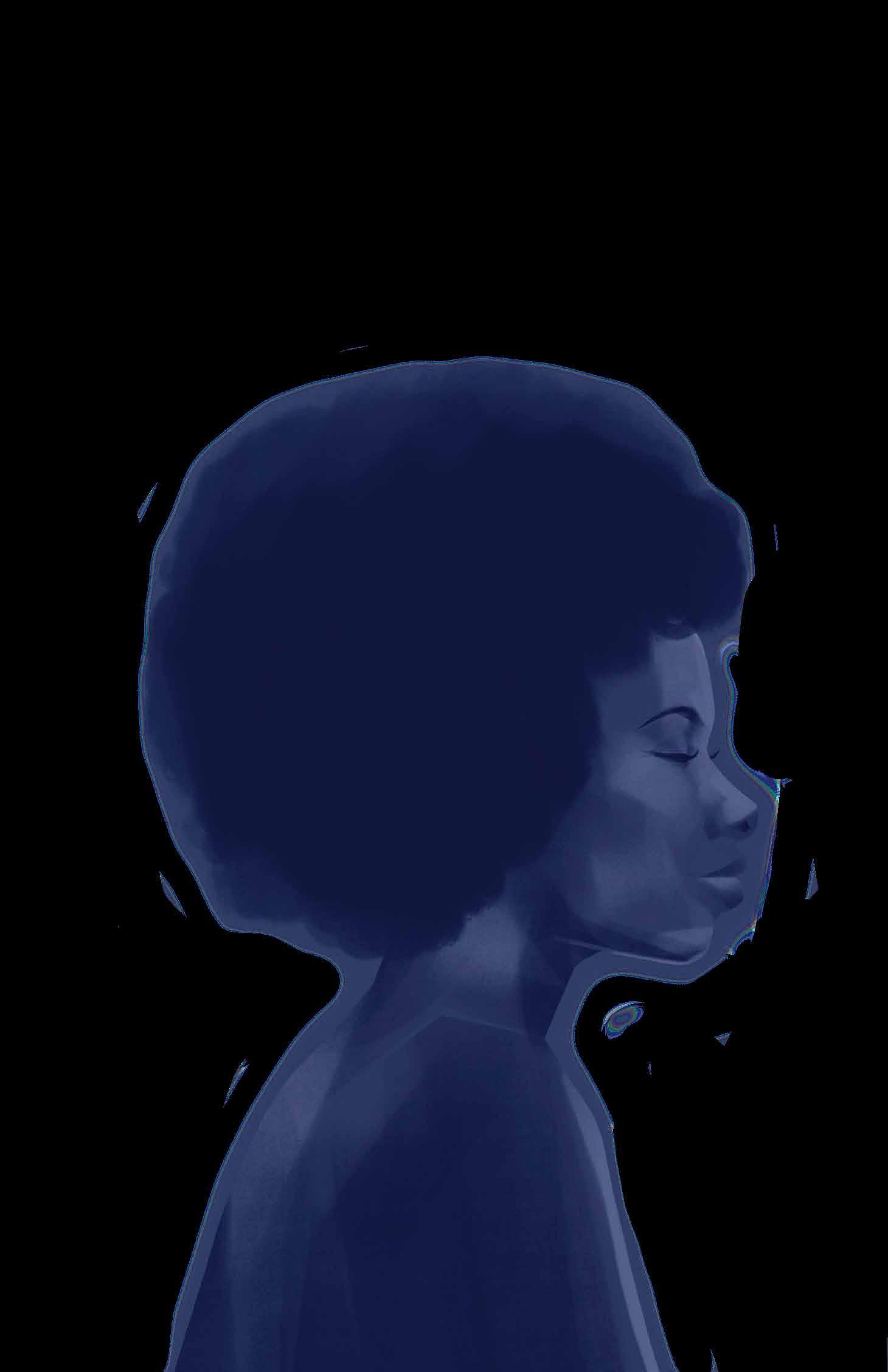
-
DAILY FORTY-NINER Vol. XCIV, Issue 58 www.daily49er.com Monday, February 20, 2023 EST p 1949
Amanda Gorman
Black History Month
Illustration by Jasmine Lee and El Nicklin Amanda Gorman is an American poet and the first to be named National Youth Poet Laureate. Some of her works include “The Hill We Climb” and “Change Sings.”
Daily Forty-NiNer
1250 Bellflower Blvd., LA4-203 Long Beach, CA, 90804
Editorial Office Phone (562) 985-8000 Business Office Phone (562) 985-1740
Christal Gaines-Emory Editor in Chief
eic@daily49er.com
Kristina Agresta Business Manager business@gobeach.media
University plans to move O.H.O.S. to library basement by summer 2024
BY VINCENT MEDINA News Assistant
The Organization of Historically Oppressed Students will be displaced following the Cultural Resource Center’s planned demolishment in the summer of 2024. A new building for the College of Health and Human Services is in the works.
President Jane Close Conoley said the CRC building was constructed during the 1960s and was meant to stay up for only a decade. Instead, the building has stood for 50 years.
Conoley said Long Beach State could not build a new cultural resource center because it would cost approximately $150 million. The university president and her administration suggested moving the student and multicultural organizations from the Faculty Office three building to the library basement.
Conoley spoke with O.H.O.S. in September 2022 after the student organizations expressed their disdain for moving to the library basement. O.H.O.S. told Conoley they wanted a new multicultural building and a different temporary location on campus.
Conoley said plans were underway to move the student multicultural organizations to a different location by the summer of 2024. She offered O.H.O.S. a tour of the research foundation where there is available space, but said the student organizations have not responded to her offer.
She also provided a rendering of the library basement if O.H.O.S. reconsiders the original location.
“I actually think that the library is the best solution. I understand a student’s concerns about being in the basement,” Conoley said. “When it’s remodeled, it will be beautiful. It won’t feel like it’s a basement at all.”
Conoley said the library basement has outdoor
space available for their needs and suggested adding prominent signage as students walk into the library.
“We need a decision from them because I stopped work on the library when they were so adamant against it,” Conoley said. “It will cost us a lot of money to do this renovation. And if it wasn’t going to work out, I didn’t want to spend lots of money on that.”
During their meeting with the university president in September, O.H.O.S. student leaders said the library basement is inadequate because the building is not disability-accessible. Students were also concerned about security.
Yoanna Chaya Kollin, a third year Studio Art major with Beach Hillel and the LGBTQ+ Center, said the library would be more inaccessible for students.
“The library is the farthest place on campus and where [O.H.O.S.] is located right now is more central,” Kollin said. “We’re gonna get hate no matter where we go. I don’t think we should live in fear. I think we should live with pride.”
The student organizations proposed a six-story multicultural center in the center of campus during September’s meeting. They requested the multicultural center be staffed with academic advisors, mental health counselors and directors elected by students and community-involved faculty.

“We can’t build another building,” Conoley said. “These buildings cost upwards of $150 to $160 million to build them.”
Conoley also said that constructing another building may raise student tuition fees, but said she hoped to find a location for O.H.O.S. that would satisfy them.
“I hope they’ll understand how this California State University system works. We are dependent on saving money or getting philanthropy and access to state revenue bonds,” Conoley said. “Most students don’t think about that.”
The student organizations that are a part of O.H.O.S., including the Black Student Union and La F.U.E.R.Z.A., did not respond to comment.
Land acknowLedgment
Here at the 49er we acknowledge that the school we report on is located on the sacred site of Puvungna, “the gathering place”. We are on the land of the Tongva/Gabrieleño and the Acjachemen/Juaneño Nations who have lived and continue to live here.
We also acknowledge the Gabrieleño/Tongva (pronounced: GABRIEL-EN-YO/TONG – VAH) and Acjachamen/Juaneño (pronounced: AH-HACH-AH-MEN/JUAN-EN-YO) as the traditional custodians of the Los Angeles region along with the Chumash (pronounced: CHOO-MOSH) to the north and west, and the Tataviam (pronounced: TAH-TAH-VEE-YUM) and Cahuilla (pronounced: KAH-WEE-YAH) Nations to the east. We respect and value the many ways the Tongva/Acjachemen cultural heritage and beliefs continue to have significance to the living people and remind us about the sacred and spiritual relationship that has always existed here at what we now call California State University Long Beach.
Leila Nunez Multimedia Managing Editor multimedia@daily49er.com
Kristina Agresta Managing Editor
managing@daily49er.com
Editors
Hannah Shields News Editor news@daily49er.com
Kadie Gurley Arts & Life Editor arts@daily49er.com
Georgie Smith Opinions Editor opinions@daily49er.com
Matthew Gomez Sports Editor sports@daily49er.com
Gisele Robinett Creative Director design@daily49er.com
Chief Copy Editor
Rosaura Montes
Sam Farfan Special Projects Editor
Renzo Pocasangre Photo Editor
Social Media Editor
Maureen Linzaga
Luke Wines Video Editor
Podcast Editor
Public Relations Editor
Community Engagement Editor
Isabel Silagy
Kaitlyn Rowell
Richie Rodriguez
AssistAnts
News Assistants Vincent Medina
Jaylen Minnich
Arts Assistants Stacey Chen
Andrea Lopez
Opinions Assistant El Nicklin
Sports Assistants
Nicholas Broadhead
Emmanuel Barrera
Naoki Gima
Graphic Design Assistants
Copy Editor Assistants
Photo Assistants
Jasmine Lee
Luis Castilla
Kimberly Estrada
Sonny Tapia
Armando Jacobo
Social Media Assistants Ani Gutierrez
Montse Palmerin
Video Assistants Tatiahna Bentley
Podcast Assistants
Ella McDonald
Lei Madrigal
Andy Nguyen
Aiden Swanepoel
BusinEss
Purva Rao Advertising Manager advertising@gobeach.media
Jasmine Lee Creative Director
creative@gobeach.media
Leila Nunez Web & Technology Manager
web@gobeach.media
Kaitlyn Rowell PR & Promotions Manager
Distribution Manager
PR@gobeach.media
Jesse Kalamian
Jazmin Gallardo distribution@gobeach.media
Jacob Mitchell Distribution Analyst distribution@gobeach.media
AdvisErs
Gary Metzker Design Adviser
Content Adviser
Barbara Kinglsey-Wilson
Jennifer Newton Advertising & Business Adviser
Letters Policy: All letters and emails must bear the phone number of the writer and must be no more than 300 words. The Daily Forty-Niner reserves the right to edit letters for publication in regard to space.
Editorials: All opinions expressed in the columns, letters and cartoons in the issue are those of the writers or artists. The opinons of the Daily Forty-Niner are expressed only in unsigned editorials and do not necessarily reflect the opinions of the journalism department or the views of all staff members. All such editorials are written by the editorial board of the Daily Forty-Niner.
ON THE COVER
2 Monday, February 20, 2023 daily49er.com | @daily49er
Photo courtesy of Long Beach State
The Cultural Resource Center building will be taken down in summer 2024, displacing O.H.O.S. President Jane Close Conoley explained the building was built in the 1960s and stay up for a decade.
NEWS
Workshop to give advice on how Black professionals thrive in workplaces
BY MARYANN ALEXIS BRUSCHI Staff Writer
Guest panelists from the Boeing Black Employees Association will speak at a workshop, Career Insights for Black Students, on Tuesday, Feb. 21, to give advice on how to thrive in the workplace.
“We have hosted this workshop for the past, if I am not mistaken, two to three years,” said Rosa Trujillo, assistant director of Career Education and Counseling at Long Beach State.
The hosts of this year’s workshop decided to have a panel of professionals who will, “Talk about aspects in the workplace that are particular to Black students that they must be aware of,” according to Trujillo.
The workshop will focus on key factors in workplace success such as profession-
alism for Black professionals and dealing with microaggressions.
“What can you do as a student now in college to start searching for companies that can really help you celebrate and integrate your multiple identities?” Trujillo said.
Prior to this hybrid event, a ten-minute Zoom session will be shared from the #BlackProfessionals on TikTok.
The main focus of this workshop is to give students advice on how to thrive in a professional environment, but it is also a moment to celebrate Black History Month and acknowledge the success of Black professionals in the workplace.
While the workshop is focused on career insights for Black students and the intersectionality of additional identities, all students are invited to attend. Trujillo said that this would be a space for allies to engage, learn and show how to be a proper advocate for others.
“Many reports and data [continue]
to show that, in comparison to our white counterparts, Black, African American folks are in disparity in terms of opportunities,” Trujillo said.
The Career Development Center aims to inform students on how to navigate the work system better and overall promote their success. The center does this by hosting workshops as well as providing a space for students to come and ask questions and be guided toward success.

The center, by promoting professional organizations such as the Boeing Black Employees Association, shows students why it is important to have these specialized groups within their workspace.
The CDC is a tool and Trujillo said she encourages students to take advantage of it and use it in order to help them succeed.
The hybrid event will start with TikTok reels which will be followed by the introduction of the panel. There will also be a discussion on the community rules for the workshop, with land and labor acknowl-
edgments, and an opportunity at the end for panel questions where students can engage.
Trujillo said that, although the CDC is giving the workshop, she wanted to recognize Paul Carter, who introduced the Boeing Black Employees Association to the CDC. Carter is the assistant director of the Black Resource Center.
Trujillo said Terri Armstrong and her team in the office of Multicultural Affairs have shared feedback from students regarding the CDC. The general feedback included ways better to meet student needs in the resource centers and how to approach these more difficult topics.
Workshop
Feb. 21, Noon
For priority access, RSVP on CareerLINK and join via Zoom or in person
Louisiana Charlie’s brings Southern hospitality to Long Beach
BY CHEYENNE ELIZARRARAS Staff Writer
Louisiana Charlie’s is a local Blackowned cajun restaurant located at Shoreline Village. After being in the restaurant business since 1984, owners and married couple of 41 years, Shanda Laurent and Eric Laurent brought their roots to California in 2013.
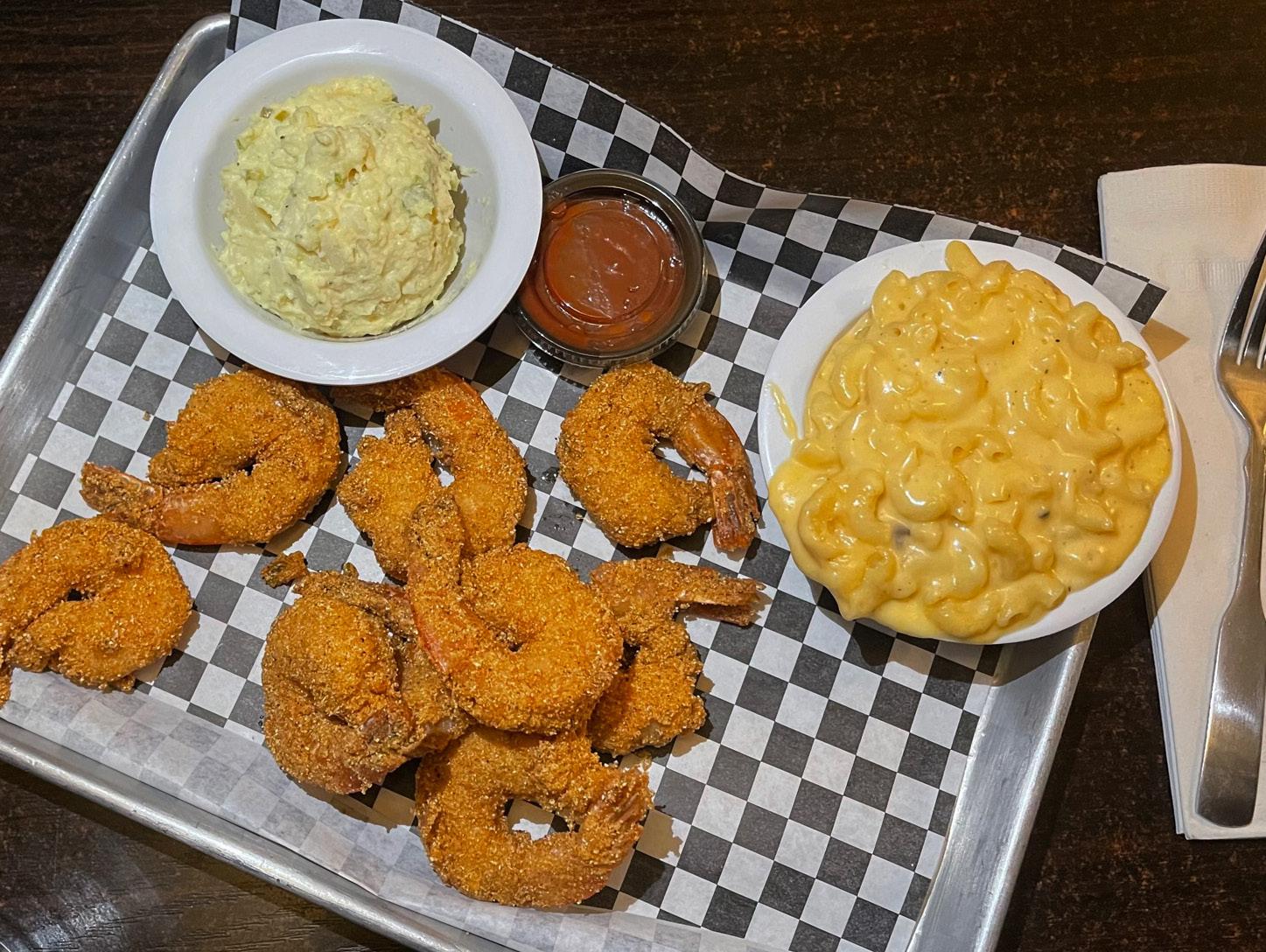
The restaurant was named after Shanda Laurent’s father, Charlie, who was born and raised in Wilson, Louisiana. After Charlie passed, naming the restaurant wasn’t difficult.
“It’s in honor of the great memories of his background, food and culture,” said Shanda Laurent.
Although Shanda Laurent didn’t grow up in Louisiana, her father made sure his children knew their family and culture. All of Louisiana Charlie’s recipes are from her grandmothers and further.
“We took recipes from both sides of the family because in a business you need to do what patrons generally are used to,” said Shanda Laurent. “Some recipes are Cajun like our gumbo instead of Creole. Most people nowadays don’t know the difference.”
After opening the first location in Long Beach, the couple opened a second location in 2020, bringing New Orleans soul food to San Diego.
“This location was special because we
were looking for something different and after having different types of restaurants,” said Shanda Laurent. “We wanted something that represents our family and culture.”
The Mardi Gras-themed restaurant with a welcoming staff offers waterfront outdoor and indoor seating serving Southern barbecue, Cajun-style cuisine and cocktails. The restaurant is filled with big, beautiful chandeliers and private booths. From po’boy sandwiches to alligator meat, seafood boil and more, Louisiana Charlies brings a New Orleans comfort to Long Beach.
“We were trying to offer an upscale dining experience with great Southern foods, beautiful water views and Southern hospitality,” said Shanda Laurent.
The aromas accentuate the overall southern comfort feel of the restaurant. Everything is seasoned with cajun spices and shiny with butter and garlic. The peach cobbler is a golden brown, warm, cinnamon treat with fresh peaches.
“It smells so good I can already taste it,” said customer Sophia Conversano, as she waited for her jumbo shrimp to arrive.
With various sandwiches and side dishes, such as cornbread and baked beans, chicken plates, gumbo, and brisket options, the cuisine is not limited to seafood lovers. The seafood boil portions are shareable so bring a buddy to enjoy a meal with.
“Laurent men made the best barbecue smokers out of bricks,” said Shanda Laurent. “That’s how my husband learned as a child how to smoke meat.”
3 Monday, February 20, 2023 daily49er.com | @daily49er NEWS
CHEYENNE ELIZARRARAS / Daily Forty-Niner
Crispy, fried jumbo bayou shrimp accompanied by creamy and cheesy southern-style mac and cheese.
ARTS
MARYANN ALEXIS BRUSCHI / Daily Forty-Niner Career Development Center provides tools for career and decision making, job searches, resources, job fairs and so much more.
Black empowerment films that will warm your heart
BY ARTURO FLORES Staff Writer
Stories told through film not only serve to entertain audiences, but also have the power to share the heartbreak and joy felt within the Black community.
While the stories of pain and struggle are important and inspirational, it’s just as important to highlight films that focus on triumphs and joy. From unseen heroes to heartwarming friendships, here are some of the more inspirational films that uplift and bring joy.
“Hidden Figures”
Last but not least this 2016 drama based on true events tells the story of three female Black mathematicians who worked at NASA during the famous Space Race in the 1960s. The film follows women who were segregated due to their race and sex at the Langley Research Center. The group of mathematicians included memorable characters Katherine Johnson (Taraji P. Henson), Dorothy Vaughan (Octavia Spencer) and Mary Jackson (Janelle Monáe) who are beautifully brought to life with some incredible performances from the cast.
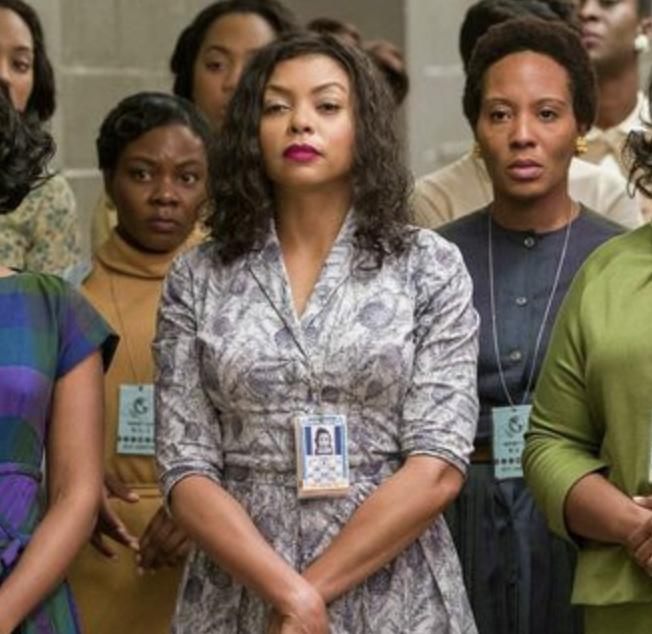
It’s an inspiring story that has you rooting for them through their journey overcoming the prejudice they face while working one of the most difficult jobs in their fields.
“Miss Juneteenth”
The 2020 drama tells the story of a single mom and her teenage daughter and their attempts to win a local Miss Juneteenth beauty pageant. Turquoise Jones (Nicole Beharie), a single mother and former winner of the Miss Juneteenth pageant, motivates her daughter, Kai Jones (Alexis Chikaeze), to compete at the upcoming beauty pageant in their small town since the reward is a full scholarship at a Black college.
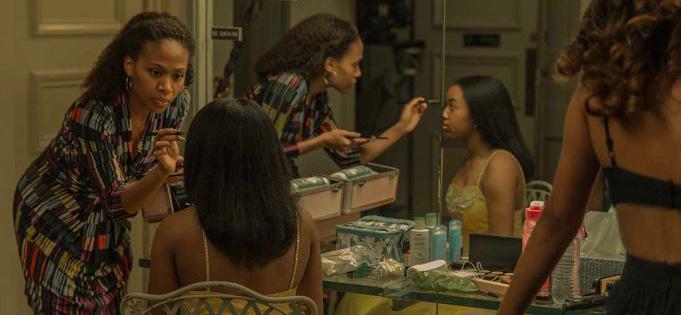
It’s a story that focuses on the difficult relationship between a mother and
daughter as tensions rise due to Turquoise Jones’ hunger for the win.
It’s a sympathetic story that one can’t help but cheer for the mother. She’s motivated but not pushy toward her daughter to win this pageant because, at the end of the day, she wants what is best for her. It’s a relatable story for parents and their kids, who often misunderstand each other, but ultimately both want love, approval, and support from each other.
“The Last Black Man in San Francisco”
This 2019 A24 drama roughly inspired by true events tells the story of Jimmie Fails and his attempt to reclaim his childhood and family home in San Francisco.
Based on the life of a childhood friend of director-producer Joe Talbot, the film touches on themes of gentrification and fighting for your home but more importantly displays the importance of friendship.
The film mainly follows Fails, who plays himself, and his best friend, Mont Allen (Jon-
athan Majors), who both live together with Allen’s father as Fails tries to do what he can to reclaim an old Victorian house that belonged to his family years ago.
It’s a touching story that represents the rich communities in San Francisco and how gentrification affects the people who have lived in those neighborhoods for decades. More importantly, it’s a heartwarming tale of two best friends with big dreams supporting one another despite their circumstances.
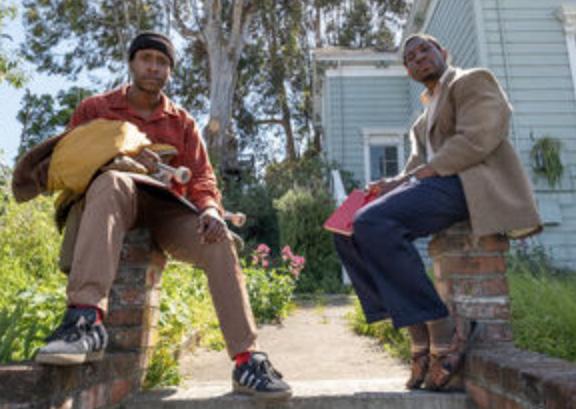
4 Monday, February 20, 2023 daily49er.com | @daily49er ARTS
Photo courtesy of Sundance Institute “Miss Juneteenth” was released in 2020 following its Sundance Film Festival premiere.
DAVID MOIR / A24
Jimmie Fails stars as Jimmie Fails and Jonathan Majors as Montgomery Allen.
Photo courtesy of 20th Century Fox “Hidden Figures” is based on the true story of three smart Black women at NASA -Katherine Johnson, Dorothy Vaughan and Mary Jackson.
Kwanzaa brings respect, celebration of African-American culture
BY CHEYENNE ELIZARRARAS Staff Writer
Mualana Karenga is a Black activist, author, professor of African studies at Long Beach State, and creator of Kwanzaa. He holds doctorate degrees in social ethics and political science.
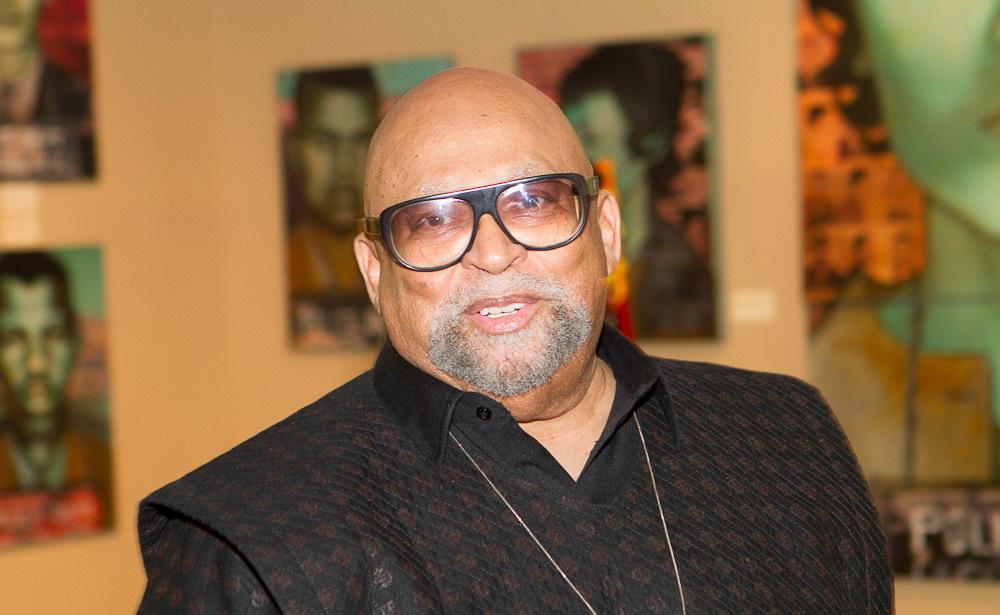
“Kwanzaa marks a profound reorientation of how we understand and assert ourselves in the world,” said Karenga. “One of the main reasons I created Kwanzaa was the reaffirm our rootedness in African culture. We have been lifted out of our own cultures’ history.”
Karenga created Kwanzaa in 1966, around the time of the civil rights movement, to unite and empower the African American community. He brought up historical activists like Harriet Tubman and stressed the need for people to root themselves in African culture by reading history, listening to oral accounts and following in the footsteps of Black ancestors.
“We have to root ourselves in the best ideas and practices of our people from ancient to modern Afro-American,” Karenga said. “Somebody did something good, raise up the good. Teach it as a model so your children can benefit from it and so you can be inspired.”
Kwanzaa is a week-long African American holiday from Dec. 26 to Jan. 1 where families and communities come together to remember and celebrate African American culture and history.
“Kwanza’s origins centered around the celebration and harvesting and sharing of goods in the world,” said Karenga. “This celebration is rooted in the cooperative
project of giving, gathering together in harmony, planting the seeds and possibilities of good.”
Kwanzaa was created based on African harvest festival traditions from various parts of West and Southeast Africa. The ideas and concepts of Kwanzaa are expressed in Swahili, one of the most widely spoken languages and the lingua franca of the Great Lakes region of East Africa. The name “Kwanzaa” comes from the Swahili phrase “matunda ya kwanza,” which translates to “first fruits.”
Kwanzaa aims to reinforce the seven principles, or the Nguzo Saba. The seven principles include Umoja (unity), Kujicha-
gulia (self-determination), Ujima (responsibility), Ujamaa (cooperative economics), Nia (purpose), Kuumba (creativity) and Imani (faith).
The holiday consists of various activities including reciting poetry, African drumming and a feast called Karamu on the sixth day. Each day, a candle is lit on a Kinara, a seven-branch candle holder, with each one standing for a different principle. The candles are green and red with a single black candle in the center.
The colors of the Pan-African flag, green, red and black are also seen on the clothing of participants and in decorations.
“Each principle calls for corresponding
practice that’s not just a practice. That’s also a cultural practice,” said Karenga. “People forget Kwanzaa is born in struggle and if you read the language of each principle, it starts with striving and struggling.”
Karenga is highly involved in various professional and community affiliations such as the African Heritage Studies Association, the Journal of Black Studies, TransAfrica Forum, the National Association of Kawaida Organizations (NAKO) and more.
He is the author of over 17 books and numerous African studies articles. Winning numerous awards for leadership, Black studies and scholarly achievements, Karenga’s activism has touched many lives.
“There are two things we should all care about; never forget where we came from and always praise the bridges that carried us over,” said Karenga.
Kwanzaa is a primarily African American holiday and can be celebrated by any African American of any religion. Generally celebrated by Black Americans, it’s also celebrated outside of the United States in other countries where there are large numbers of African descendants, including the Caribbean. It was conceived as a nonpolitical, nonreligious holiday; contrary to popular belief, it is not a substitute for Christmas.
Public Policy Polling shows that around 12.5 million Americans and around 40 million globally, celebrated Kwanzaa in 2022. This includes South Africa, Nigeria, South America, Canada, the Caribbean and more. According to Karenga, it’s not just for people of African American descent.
“One of the most important things you can do as Black people is to download with your own culture,” Karenga said.
5 Monday, February 20, 2023 daily49er.com | @daily49er ARTS
There are two things we should all care about; never forget where we came from and always praise the bridges that carried us over.
Mualana Karenga Professor of African Studies
Photo courtesy of Mualana Karenga
Professor Mualana Karenga, the creator of Kwanzaa, currently resides as a professor in Africana studies at Long Beach State.
“
Highlighting Noname: rapper, activist, book club organizer
BY EL NICKLIN Opinions Assistant
Noname is a brilliant rapper of our time who has, unfortunately, gone under the radar for many. With a combination of powerful lyricism and chill hip-hop instrumentals, her work can be given a casual listen or an emotional deep-dive.
To get into Noname’s music, check out the albums “Telefone” and “Room 25.” She was also featured in an NPR Tiny Desk Concert, which is a perfect introduction to her music.
In many of her lyrics, Noname addresses her life experiences, racism, capitalism and other related issues of identity and systemic injustices. In her single, “Rainforest,” she raps, “how you make excuses for billionaires, you broke on the bus?” These songs are often a love letter to Black America, while also serving as political protest.
Noname’s political activism extends outside of her lyrics. She is very open about her views on social media, criticizing the systems of imperialism and capitalism and offering solutions.
In a 2021 tweet, she said, “abolition isn’t singularly about destroying. It’s about building things! Free housing and schools. Free neighborhood health clinics and hospitals. Programs for community conflict resolution.”
Noname is also directly involved in building community and uplifting Black authors with the Noname Book Club. The book club has several chapters, including a Los Angeles chapter which met up recently in January.
The Noname Book Club, created and run by Noname, features two books by authors of color each month. The organization works with libraries across the U.S. to ensure that these recommended books are available to readers for free.
The Noname Book Club also sends copies of its monthly featured books to incarcerated people through the club’s Prison Program. As of this month, the program has sent over 17,000 books to people in prisons.
The club’s website explains, “our work is founded upon collective learning as a tool towards collective liberation. For us this means centering the experiences of our most marginalized community members, especially those impacted by the prison industrial complex.”
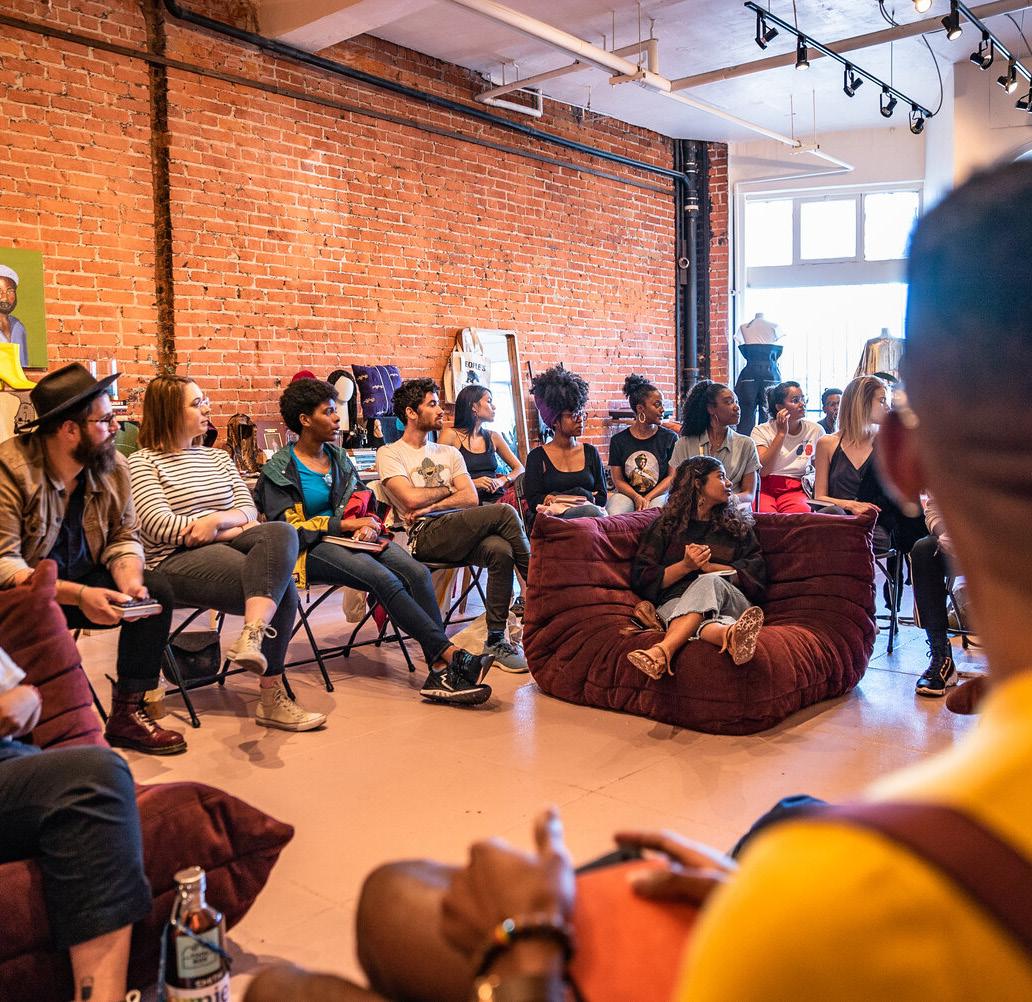
The monthly picks for February are “The Stars and Blackness Between Them,” an LGBTQ+ romance and “Of Water and The Spirit,” a spiritual book relating to African traditions.
To support and learn more about the Noname Book Club, visit nonamebooks.com.
Say their names. Emmett Till and Mamie Till-Mobley.
BY KAMRYN BOUYETT Staff Writer
The case of 14-year-old Emmett Till was the catalyst of the civil rights movement.
Within that same year, Rosa Parks and Martin Luther King Jr. would become even bigger tidal waves of change.
In the movie “Till,” director Chinonye Chukwu highlighted Mamie Till-Mobley, the mother of Emmett Till, and her perspective after finding out about the brutal murder of her son.
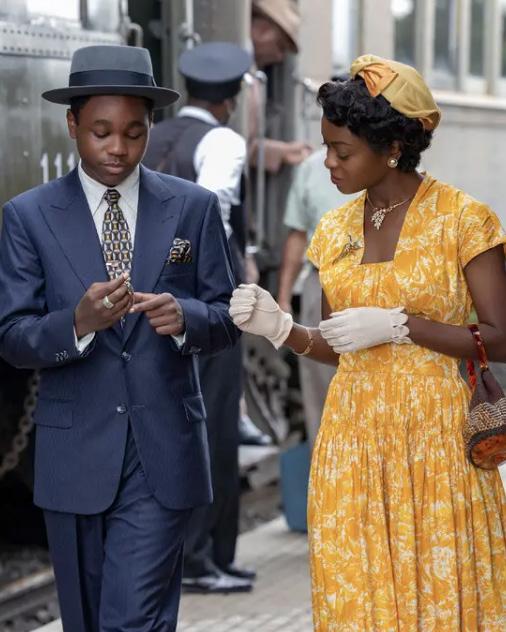
Originally from the city of Chicago, Till was visiting family in Money, Mississippi when he made the mistake of saying “bye baby” to the clerk of a grocery store.
Carolyn Bryant Donham accused Till of harassing her verbally, grabbing her by the waist and whistling at her.
According to The Vault FBI records, she said that instead of taking the money, the boy caught her hand with a firm grip. She claimed that after pulling away, he continued to make advances towards her until another boy escorted him out of the store.
In the movie, Chukwu vividly displays this interaction and creates an intensity I could feel through the screen. Personally, I did not want to watch this movie on its initial release. This is because I didn’t want to see an obviously racist act on an innocent child. The movie does not display the actual act of violence, but it does humanize and give life to a boy’s national-
ly historic death.
Although I do understand that Chukwu’s main purpose for creating this film was to shine light on what Till-Mobley did for her son, there has to be a way to honor them without emotionally hitting Black audiences. We already see this injustice on the news, so who would willingly want to go to a theater to watch it there too?
I could barely watch the reveal of Till’s body completely mutilated in the morgue. The revelation in Till-Mobley’s face when she saw what these two white men had done to her son was heartbreaking. I had to mute her cries while watching because I could feel her loss so deeply.
This is the last biopic movie I will be watching because of the mental strain it has caused on my personal identity.
Black American history is traumatizing. That is a fact, not an observation.
I agree that people need to see the importance of how Till-Mobley’s activism and decision to not hide her son’s body was historic for the civil rights movement, but it is excruciatingly painful to watch from a mother’s perspective.
There has to be more to our history other than hate.
To Black filmmakers, there must be a way to accurately represent the lost figures of our history without reigniting rage and sadness. Similar to this case, we have seen multiple stories of Black people dying for simply living.
There was a line in the movie where actor Danielle Deadwyler reassures her nephews, they didn’t know this would happen. I broke down in tears.
OPINION 6 Monday, February 20, 2023 daily49er.com | @daily49er
LYNSEY WEATHERSPOON / Orion Pictures
Jalyn Hall as Emmett Till and Danielle Deadwyler as his mother, Mamie, in “Till.”
Photo courtesy of the Noname Book Club
The Noname Book Club has chapters across the U.S. and provides incarcerated people with each month’s book recommendation.
Black women who wrote U.S. history
BY ISABEL SILAGY Podcast Editor
Jemison (1956-present)
An engineer, doctor and astronaut, Jemison became the first Black woman to travel in space. Jemison attended Stanford University and Cornell Medical School, and did humanitarian work before opening her own private medical practice. After applying to the astronaut program at NASA several times, she was accepted in 1987 and traveled to space aboard the space shuttle Endeavor in 1992. Jemison left NASA in 1993 and founded the Dorothy Jemison Foundation for Excellence and the Jemison Group consulting company. She serves as a professor at Dartmouth College, and remains a foremost leader in STEM in the U.S.

Shirley Chisholm (1924-2005)
After being elected in 1968, Chisholm became the first ever Black woman to serve in the U.S. Congress. In 1972, she also became the first Black woman to seek the presidential nomination for the Democratic Party. Prior to her service in Congress, Chisholm was the second Black woman to serve in the New York state legislature. After declining re-election to Congress in 1982, Chisholm founded the National Political Congress of Black Women and taught in universities. Chisholm also earned a master’s degree from Columbia University, was awarded four honorary doctoral degrees and was posthumously awarded the Presidential Medal of Freedom in 2015.
Lucy Diggs Slowe (1885-1937)
Described as a “woman of many firsts,” Slowe has an impressive list of feats both in athletics and academia. In 1908, she helped find Alpha Kappa Alpha Sorority, the first historically Black sorority. In 1922, she was appointed the first Dean of Women at Howard University, becoming the first Black woman to serve as a dean at an American university. Additionally, Slowe founded the National Association of College Women and the Association of Advisors to Women in Colored Schools. After winning the American Tennis Association’s first national title in 1917, Slowe also became the first Black woman to win a major U.S. sports title.
Johnson was one of the most central figures of the LGBTQ+ rights movement in New York City during the 1960s and 1970s. She referred to herself as a gay person, transvestite and drag queen. Many speculate that she would have identified as a transgender woman, but this term was not commonly used during Johnson’s time. She was an integral member of the Stonewall Inn riots of 1969, when LGTBQ+ community members took a stand against police brutality in New York City. Johnson was honored in a public arts monument in New York City in 2019, and a waterfront park in Brooklyn was named after Johnson in 2020. Johnson remains one of the most recognized leaders in America’s fight for LGBTQ+ equality.
Amanda Gorman (1998-present)
A Los Angeles native and graduate of Harvard University, Gorman was named the first U.S. National Youth Poet Laureate. In January 2021, the poet and activist became the youngest ever inaugural poet in the U.S. after performing an original poem, “the Hill We Climb,” at President Joe Biden’s inauguration. Gorman was also the first poet commissioned to write a poem to be performed at the Super Bowl, and is the founder of One Pen, One Page, an organization that provides creative writing resources to underserved youth.
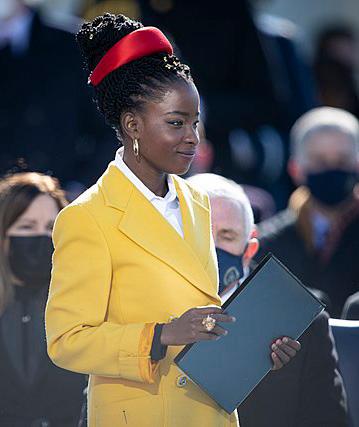
7 Monday, February 20, 2023 daily49er.com | @daily49er OPINION
Marsha P. Johnson (1945-1992)
Mae
Photo courtesy of NASA on The Commons Mission Specialist Mae Jemison at aft flight deck ports (001-003) on Space Shuttle mission STS-47 in 1992. She was the first woman of color in space.
Photo courtesy of Wikimedia Commons
Amanda Gorman steps to the podium to recite her inaugural poem, “The Hill We Climb,” during the 59th Presidential Inauguration ceremony in Washington.
Influential Black Athletes throughout
 BY KADIE GURLEY Arts & Life Editor
BY KADIE GURLEY Arts & Life Editor
1936
1884
Moses Fleetwood Walker debuted in the league with the Toledo Blue Stockings in a 5-1 loss against the Louisville Eclipse. Even though Walker’s team lost in his first game, breaking the color barrier was a win for generations to come.
Jesse Owens won four gold medals at the 1936 Olympic Games. Despite the Olympics being overruled by Adolf Hitler, Owens won the 100m in 10.30 seconds, the 200m in 20.70 seconds, and then the long jump, with an impressive leap of 8.06 meters.
1947
Jackie Robinson became the first Black to play Major League Baseball in the modern era for the Brooklyn Dodgers.
1897-1928
American boxer Jack Johnson was the first African American to become heavyweight champion. Fighting professionally from 1897 to 1928, one of his biggest victories was knocking out former champion James J. Jeffries, who had been induced to come out of retirement as a “Great White Hope.” Johnson had 114 matches, winning 80, 45 of them via knockouts.
1960
Wilma Rudolph won three gold als and broke at least three world records. Rudolph became the first American wom an to win three gold medals in track field at the same Olympic game. Her formance also earned her the title of fastest woman in the world.”
8 Monday, February 20, 2023 daily49er.com | @daily49er SPORTS
Photo courtesy of Wikimedia Commons
medrecords. womand per“the
sports history
1956
Bill Russell would go down in history for winning gold for the U.S. national men’s basketball team at the 1956 Olympics.
1966
Bill Russell, arguably one of the greatest NBA players in history, was known for his defense, rebounds and shot-blocking during his time in the Boston Celtics. Russell made an impact on the team and led the Celtics to win 11 championships in 13 seasons. Russell became the first Black coach in the NBA and the first to win a championship.
1990s
One of the most well known athletes in the world, Serena Williams, has changed the game of tennis since her beginning with sister Venus Williams. With 23 titles, Williams has won the most Grand Slam tournaments in the Open Era, the most since 1968. She also holds the record as the only player, man or woman, to accomplish a Career Golden Slam in both singles and doubles and for winning gold medals in the Olympics. At some point in her career, Williams was one of the highest paid women in tennis and in sports, earning $29 million in 2017.

2001
Tiger Woods is regarded as one of the greatest golfers in history and has impacted the sport in decades. He has won five Masters Tournaments, four PGA Championships, three U.S. Open Championships, and three British Open Championships. With his second Masters victory, Tiger became the first golfer ever to hold all four professional major championships at the same time.
9 Monday, February 20, 2023 daily49er.com | @daily49er throughout
BY MATTHEW GOMEZ Sports Editor
Reading is meant to be an outlet for education especially non-fiction books that look to inspire readers on a variety of subjects; one being sports.
Many athletes have left an impact long after their deaths; none more so though than Black athletes who were facilitators for change.
The state of Florida, however, does not view them that way, with Duval County making the decision to ban 176 different books from their schools at the end of 2022.
COMMENTARY
Black athlete stories go silent
Typically banned books are ones that are considered decisive with the likes of 1984 and Fahrenheit 451 being more commonly included in these lists.
In the case of Duval County though, they felt it necessary to prohibit books highlighting notable athletes who were minorities with a heavy focus being on Black and Latinx baseball players who were pivotal in groundbreaking change across not only the major leagues but other sports as well.
Of the books, the most notable included biographies of Jackie Robinson, Hank Aaron and Roberto Clemente. These aren’t even the most divisive books about these athletes as they were targeted at children. Since controversy arose, the stories on Aaron and Clemente have returned to
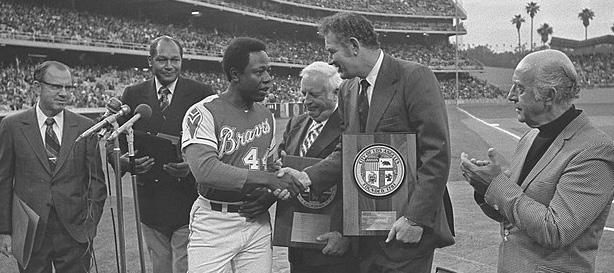
Cammon flies under the radar with pride
the shelf.
With an entire county making the decision to potentially ban picture books about prominent athletes, it calls into question the reasoning why they found it so important.
What about these athletes was controversial and why did the list not stop there, as they included other significant Black figures like Harriet Tubman?
There was a notable bias on what was banned and though the county has disputed it happening, the books were not on shelves in schools as recently as this month.
Isn’t it valuable to teach the youth about athletes responsible for breaking the color barrier in any state, but especially one whose population is 17% Black or African American?
BY EMMANUEL BARRERA Sports Assistant
Long Beach State head women’s basketball coach Jeff Cammon makes history as the second Black coach in program history. He follows the footsteps of former head coach and mentor Glenn McDonald.
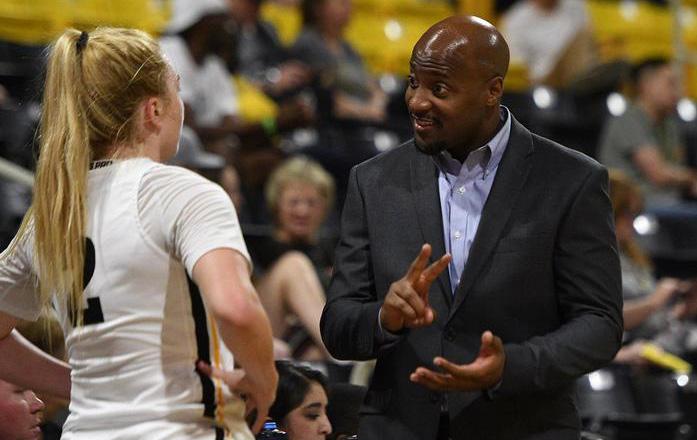
“One of my mentors is Glenn McDonald who was the first African American coach,” Cammon said. “He [Glenn] did a lot for the university and our athletic program and a lot for a women’s program.”
Cammon and his siblings grew up with racial barriers and learned how to navigate them due to their upbringing and advice from their parents.
“Many things that my parents taught me is, we’re not going to make excuses being Black and all the challenges that you face,” Cammon said. “We’re going to fight and compete and work our butts off and we’re going to be good people despite that, and we’re going to try to be bigger than those evil terrible things.”
Before Cammon became the seventh head coach of the women’s basketball program, he was a point guard for his alma mater Alcorn State from 1998 through 2003.
Cammon began his coaching career as an assistant coach for LBSU from 2009 through 2014, before spending two seasons at Cal, and
Take Jackie Robinson for example, what about his story is harmful to be taught in schools? He’s a man who faced adversity and racism at every stop he made during his Major League journey and paved the way in a sport that to this day still lacks diversity in that respect.
Currently, only 7% of the MLB is made up of Black baseball players, leaving Robinson’s historic achievement as something that still needs to be built on.
Educating students on these athletes who risked it all in their respective sports shouldn’t be considered damaging. Florida views it that way and has shown a continued effort to bring down, silence or completely alienate Black figures in history.
one season at Colorado. His return in 2017 saw him announced and hired as the head coach for The Beach.
“I think when I was here as an assistant, they got to see who I was as a person,” Cammon said. “Real genuine people that actually genuinely care about, you know, us as people and me as a person.”
In his first five years as head coach, Cammon has led The Beach to five Big West tournaments as far as the quarter-finals, which earned him a contract extension until 2027.
Cammon is also known for who he is outside the court. Redshirt senior guard Ma’Qhi Berry is one of Cammon’s earlier recruits who recently became the 27th player in program history to score 1,000 career points.
“It wasn’t just about basketball with him, he was always asking me how my family is, the people around me, how school [is], we rarely even talked about basketball,” Berry said. “Showing that he cared about me more as a person was really the main thing that like drew me to him and the rest of the coaching staff in the school.”
Cammon shared that as a Black head coach, there is often attention on him, but he tries to stay under the radar and focus on his job.
“I take great pride in being an African American male coach, and representing our community,” Cammon said. “Whether Black or Asian, it doesn’t matter. I think in general, just being able to impact lives.”
10 Monday, February 20, 2023 daily49er.com | @daily49er SPORTS
Photo courtesy of Wikimedia Commons
Hank Aaron’s book was one of many put under review, his achievements include breaking the home run record in the major leagues.
Photo courtesy of LBSU Athletics Cammon relays advice to one of his players. His athletes like Ma’Qhi Berry noted he is more than just a coach.
Women's head basketball coach Jeff Cammon is honored to build on the historic achievement and foundation laid out by his mentor Glenn McDonald.














 BY KADIE GURLEY Arts & Life Editor
BY KADIE GURLEY Arts & Life Editor










